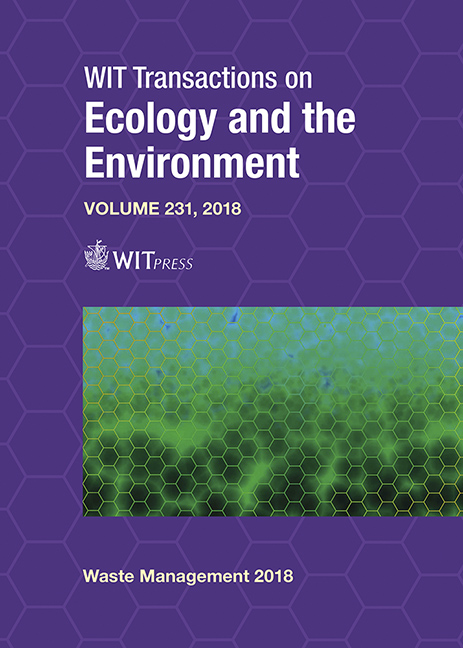NEURAL NETWORK MODELING TO SUPPORT AN EXPERIMENTAL STUDY OF THE COMPOSTING PROCESS OF BIOWASTE WITH FILTER CAKE AND STAR GRASS
Price
Free (open access)
Transaction
Volume
231
Pages
12
Page Range
225 - 236
Published
2019
Paper DOI
10.2495/WM180211
Copyright
WIT Press
Author(s)
JONATHAN SOTO-PAZ, PABLO MANYOMA-VELÁSQUEZ, RICARDO OVIEDO OCAÑA, WILFREDO ALFONSO, EDUARDO CAICEDO, PATRICIA TORRES-LOZADA
Abstract
Biowaste (B) is the predominant fraction of municipal solid waste (MSW) in developing countries and composting is one of the most widely used technologies for the use of biowaste. Several interrelated factors affect the efficiency of the bioconversion of the substrate influencing the development of the composting process and therefore, the quality of the final product. Simulations through Artificial Neural Networks-ANN allows to determine the influence of these factors and to make predictions that improve the process and the quality of the final product which providing the definition of real criteria for the implementation of the technology. This study shows the feasibility of simulating, with feedforward ANN, the composting process at a pilot scale by mixing with biowaste, Filter cake (FC) and star grass (SG). Experiments were carried out with a Box-Bemkhen design, simultaneously evaluating factors such as the mixing ratio (MR) of B:FC:SG (60:20:20, 70: 10: 20 and 65:15:20) and turning frequency (TF) (1, 2 and 3 days were experimented) on variables such as temperature, pH, oxidizable organic carbon and total nitrogen which also allowed to get heuristic models based on ANN. It was found that the MR and TF affect both the process and the quality of the product, presenting the best result at the ratio of 65:25:10 with TF of 2 times per week which is supported by the ANN prediction with an R2 ≥ 0.85 according to the experimental data.
Keywords
simulation, co-composting, neuronal network, filter cake, biowaste, star grass





